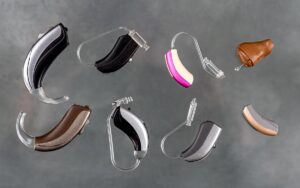You could be opening yourself to startling misinformation about tinnitus or other hearing issues without ever recognizing it. This according to recent research published in The Hearing Journal. Allot more people have tinnitus than you might recognize. One in 5 US citizens struggles with tinnitus, so ensuring people have access to accurate, trustworthy information is essential. The internet and social media, sadly, are full of this kind of misinformation according to a new study.
How Can You Find Information About Tinnitus on Social Media?
You’re not alone if you are looking for other people with tinnitus. A great place to find like minded people is on social media. But ensuring information is disseminated accurately is not well regulated. According to one study:
- There is misinformation in 30% of YouTube videos
- Out of all Twitter accounts, 34% contained what was classified as misinformation
- Misinformation is found in 44% of public facebook pages
This quantity of misinformation can be an overwhelming challenge for anyone diagnosed with tinnitus: Fact-checking can be time-consuming and a large amount of the misinformation introduced is, frankly, enticing. We want to believe it’s true.
Tinnitus, What is it?
Tinnitus is a common medical condition in which the person suffering hears a buzzing or ringing in one’s ears. If this buzzing or ringing lasts for more than six months, it is known as chronic tinnitus.
Prevailing Misinformation About Tinnitus and Hearing Loss
Many of these mistruths and myths, of course, are not created by social media and the internet. But spreading the misinformation is made easier with these tools. You should always go over questions you have about your tinnitus with a trusted hearing professional.
Why this misinformation spreads and how it can be challenged can be better comprehended by exposing some examples of it.
- If you’re deaf, you have tinnitus and if you have tinnitus, you will go deaf: It’s true that in some cases tinnitus and loss of hearing can be linked, but such a connection is not universal. There are some medical concerns which could trigger tinnitus but otherwise leave your hearing untouched.
- Tinnitus can be cured: The desires of people with tinnitus are exploited by the most common kinds of this misinformation. Tinnitus has no miracle cure. There are, however, treatments that can help you maintain a high standard of life and effectively manage your symptoms.
- Changes in diet will improve your hearing: It’s true that your tinnitus can be aggravated by some lifestyle changes ((as an example, having anything with caffeine can make it worse for many people). And there may be some foods that can temporarily diminish symptoms. But there is no diet or lifestyle change that will “cure” tinnitus for good.
- Hearing aids can’t help with tinnitus: Because tinnitus is experienced as a certain kind of ringing or buzzing in the ears, lots of people think that hearing aids won’t help. Your tinnitus can be successfully managed by modern hearing aids.
- Loud noises are the only trigger of tinnitus: The specific causes of tinnitus are not really well known or recorded. Lots of people, it’s true, have tinnitus as an immediate outcome of trauma to the ears, the results of especially severe or long-term loud noises. But traumatic brain injuries, genetics, and other factors can also lead to the development of tinnitus.
Accurate Information About Your Hearing Loss is Available
For both new tinnitus sufferers and those well acquainted with the symptoms it’s crucial to stop the spread of misinformation. There are a few steps that people should take to attempt to protect themselves from misinformation:
- Look for sources: Try to learn what the sources of information are. Was the information written by or sourced from hearing specialists or medical experts? Do trustworthy sources document the information?
- If the information seems hard to believe, it probably isn’t true. Any website or social media post that professes knowledge of a miracle cure is almost certainly little more than misinformation.
- Check with a hearing specialist or medical professional: If you’ve tried everything else, run the information that you found by a trusted hearing professional (ideally one acquainted with your case) to find out if there is any validity to the claims.
The astrophysicist Carl Sagan once said something both simple and profound: “Extraordinary claims require extraordinary proof.” acute critical thinking skills are your strongest defense from alarming misinformation about tinnitus and other hearing Concerns at least until social media platforms more carefully separate information from misinformation
set up an appointment with a hearing care professional if you’ve read some information you are unsure of.





